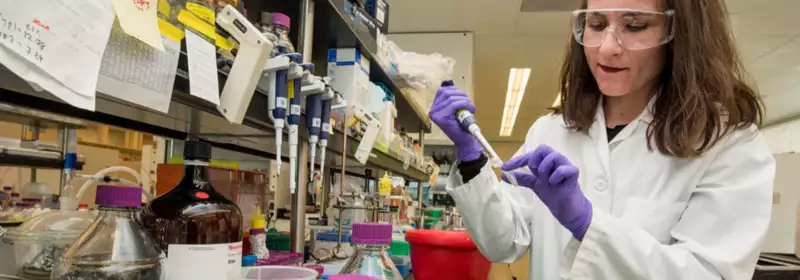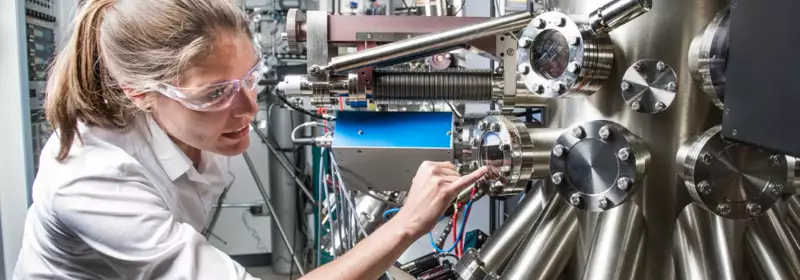It’s always a contentious thing to say that a certain subject or profession is more important than others. But the sciences are most certainly up there.
Biology helps us to understand the human body and the natural world. It helps us to understand diseases and how they spread.
Chemistry helps us develop the vaccines and unpick how everything is made.
Physics tries to unravel the mysteries of the universe and existence itself. Thanks to physics, we have picked up tremors in the fabric of reality and identified a star orbiting a super massive blackhole.
Science is, to coin a phrase, awesome.
But what if your ambitions of a career in the sciences is hampered by a lack of qualifications?
Fortunately, the door to education is never closed and there are options available, regardless of your educational track record.
Choose your Pathway
First, you need to establish which science route you wish to take. You may already have a firm idea but if not give it some real consideration.
Not only because each of the core sciences are wildly different, but they also draw on different skill sets.
There are similarities of course. All the sciences require an enquiring mind, attention to detail, strong problem-solving skills and teamwork.
But as the sciences are essentially different areas of study, below is a brief summary of what being a biologist, chemist or physicist entails:
What does a biologist do?
Biologists help us to understand environmental issues, genetics and the biology of animals and plants by studying living things and the world around them. Biologists work across a wide variety of sectors, including agriculture, conservation, medicine and industry.

What do I need to do to become a biologist?
To become a biologist, you will need to have an enquiring mind and good problem-solving skills. You will also need to work accurately and pay close attention to detail. Depending on your career path, you may need to go on to study a Masters or a PhD.
What does a chemical scientist do?
Chemical scientists are involved in some of the most critical areas of scientific research around human health, climate change, and energy. They use their problem-solving and analytical talents to pioneer new medicine, technologies, and discoveries and consulted on nuclear power and space travel.

What do I need to become a chemical scientist?
While not all chemistry courses will require a GCSE in Maths, it is highly recommended. Equally A Levels in Chemistry and Maths (or an equivalent qualification) would be advantageous.
You will need a degree in chemistry to move into fields like pharmacology, chemical engineering and biochemistry.
Depending on the role and level of research you may need a Masters degree or a PhD.
What does a physicist do?
There are two areas of physics: theoretical analysis and experimental research.
The former is about developing ideas, developing computer simulations and using mathematical modelling to make predictions.
Experimental research tests how well theories stand up to results.
Physicists apply their knowledge in a range of different industries and capacities, depending on their area of expertise. As such physicists might be involved in climate forecasting, developing medical instruments and treatment, work in satellite technology and space exploration, power generation, robotics or AI.

What do I need to do to become a physicist?
To do a degree, you will usually need five GCSEs (A*-C), including Maths, English and science, as well as three A Levels, including Physics and Maths. Or an equivalent qualification like an Access to Higher Education Diploma, such as an Access to Science Course.
You should check with universities for their entry requirements well in advance of applying.
Employers will also look for a Masters or a PhD.
Some graduate programmes will allow you to study for your PhD while you work. This is especially useful if you wish to go into research as this is a requirement in most instances.
Getting Qualified
If a career in one of the sciences appeals, but you don’t have the qualifications needed, there are options available.
GCSEs
The sciences require a respectable passing grade in both GCSE Maths and English, as well as the subject you are focussing on.
If you lack those qualifications, then you may struggle to be accepted on to a university undergraduate course.
Fortunately, there are a range of organisations that offer GCSE courses including colleges and distance learning providers.
You can bring those core qualifications up to standard in a few months, leaving you free to progress your education from there.
A Levels
One option available to you if you don’t have A Levels is simply to study them. While studying for the next two years may seem a daunting prospect, it gets you where you want to go.
The advantage of A Levels is that you can tailor your studies to reflect your academic and professional objectives.
You also have the added benefit that A Levels are recognised and accepted not just in the UK but abroad too. While international study may not be an option for some, it’s nice to have the option in the first place.
In order to get on to most science courses you will need at least two A Levels. One will need to be the relevant science subject (biology, chemistry or physics) and maths would be a logical choice for the second, especially for physics.
If you choose a third A Level, then you have a reasonable amount of freedom in deciding what to study. Although it would make sense to opt for a course that will support your university learning.
Access to Higher Education Diploma
Access to Higher Education Diplomas are specifically for those who lack the relevant qualifications to study at the undergraduate level.
Anyone can enrol on to an Access to HE Diploma in their chosen area of study. The Access to science courses are designed specifically around giving you the foundational knowledge you need and preparing you for a science degree at university.
Moreover, you only need to complete one Access course in order to get into university, and you can usually complete the two-year course inside of a year.
So, while it may not give you the variety of A Levels, Access courses do give you a laser-focused trajectory towards undergraduate study. And in less time.
Access to Higher Education Diplomas can usually be studied via distance learning providers too so you can study when it suits you.
Once you’ve decided on your pathway to higher education, all you need to do is enrol on the course/s that will give you the qualifications you need.
Get in touch with our sales team or sign up today online. There are flexible payment terms available to help you spread the cost.
You will also have access to a dedicated tutor who will help you through the process. Check out our blog for useful tips on how to get the most out of your study experience.
Click below to download our FREE Access to Higher Education Diploma faculty brochure!




















